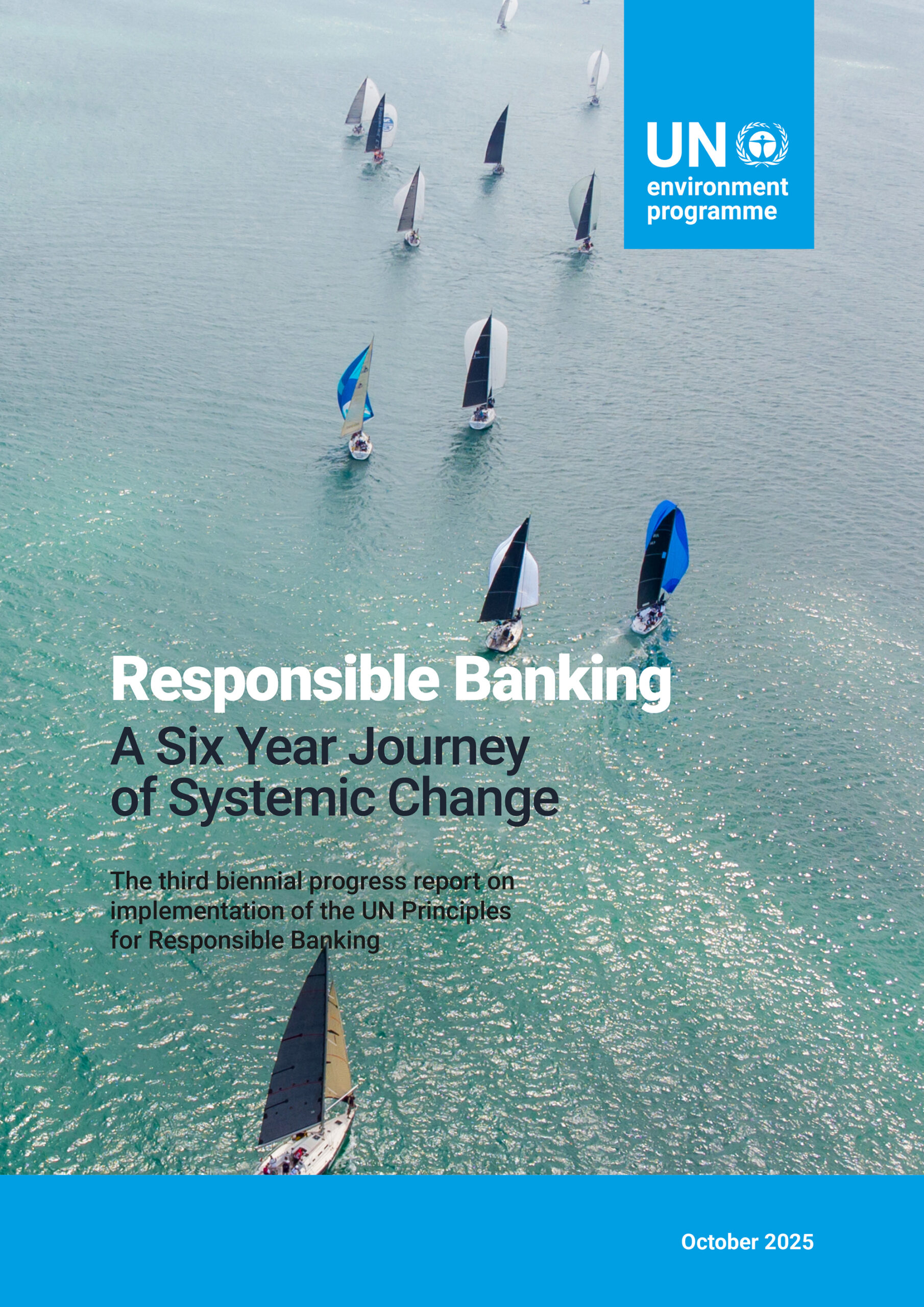On 6 November 2025, UNEP FI and MSCI Institute convened at the PRI in Person event in São Paulo, where industry leaders gathered to take a deep dive into how sustainability commitments are shaping responsible banking practices and financial outcomes. Drawing on new analysis from the Principles for Responsible Banking (PRB) Third Biennial Progress Report and data from the MSCI Institute, the discussion highlighted that banks embedding sustainability into their core business are outperforming peers on both ESG and financial indicators.
Speakers agreed that ESG is a key business enabler, and embedding sustainability is becoming a distinct marker of competitive advantage, making it integral to governance, risk management and access to finance. Sustainability leadership has moved beyond reputation management. It is becoming a core driver of value creation in banking, and is now a marker of operational excellence and long-term resilience. In fact, signatories to the Principles of Responsible Banking that are delivering stronger ESG performance pay less, on average, for equity and debt capital. This demonstrates the tangible value of embedding sustainability into strategy, governance, and client relationships.
- 61% of PRB signatories rated as ESG leaders vs. 23% non-PRB banks.[1]
- PRB signatories paid one percentage point less for equity and debt capital than non-PRB banks.[1]
- Research suggests a positive link between banks that commit to PRB principles and their overall performance on key sustainability metrics. [2]
The conversation also underscored how enhanced sustainability leadership is increasingly being recognised by investors, which contributes to lower capital costs, wider market access and stronger resilience. Banks that align investor relations, regulatory compliance and operational strategy with ESG commitments are better positioned to navigate the transition to a nature-positive economy.
“Responsible banking integrates climate, nature, healthy and inclusive economies and human rights into core credit and market activity. It is about creating long-term value for investors, clients, and society.”
– Eric Usher, Head of UNEP FI
This session reaffirmed that responsible banking, when embedded and rigorous, is delivering not just positive societal impact but tangible business value. The findings serve as a prompt for financial institutions to elevate their approach — from pledges to performance — in support of stronger financial performance and enhanced strategic advantage.

Launched on 15 October, the PRB’s third biennial report showcases a sector-wide shift in banking practices.The report provides bespoke data and analysis demonstrating how PRB signatories are increasingly moving from commitment to action, embedding sustainability into core business strategies, governance, and client relationships to manage risk, meet stakeholder expectations and remain competitive in an evolving economy.
Highlights include:
- Banks representing circa 50% of global banking assets embedding sustainability into strategy, governance and client relationships
- MSCI analysis shows PRB banks paid one percentage point less, on average, for equity and debt capital
- Growing regulatory momentum for market practices pioneered by UNEP FI
Download and explore this rich resource here.
[1] MSCI Institute Do commitments matter?
[2] S&P Global Sustainable1 How do banks that commit to Principles for Responsible Banking measure up on sustainability KPIs?


